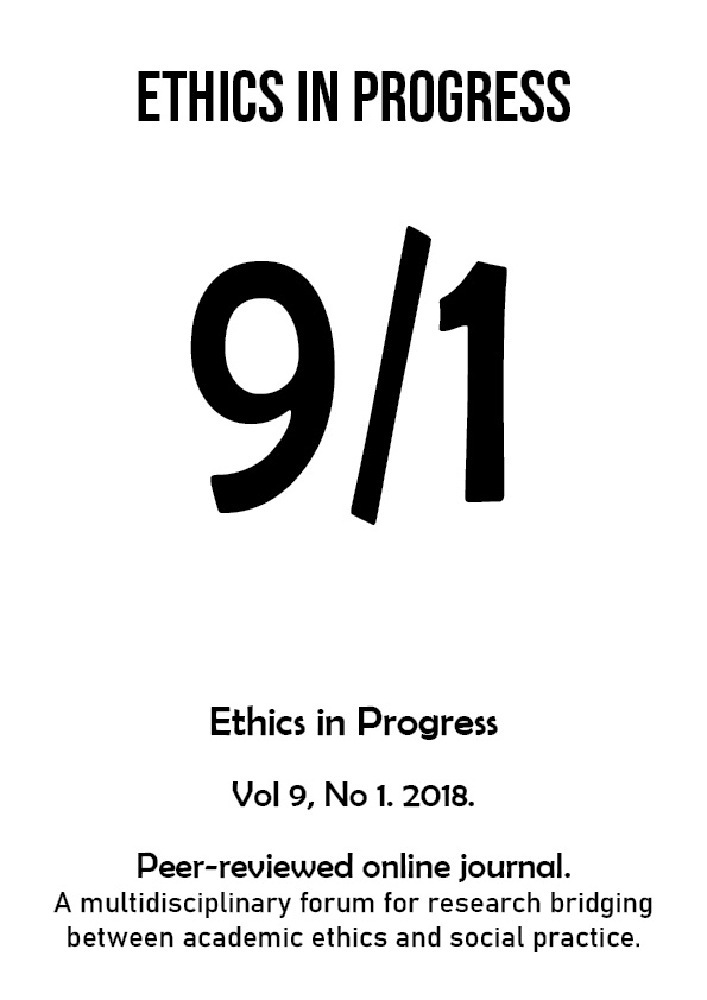Abstract
The academic strife to parse, investigate and adjust human functioning establishes varieties of at least three key concepts: behavior, action, activity. Depending on the general approach chosen, human functioning is therefore defined in a certain way and in a certain understanding of freedom. Within this paper, the pragmatist considerations of John Dewey (1859-1952) offer a sophisticatedly formulated theory of human functioning that, undoubtedly, takes action-theoretical paths but formulates underlying assumptions in a significantly unusual way. The main focus is to outline the theory in such a way that clearly shows the unusual as part of the usual and the usual as part of the unusual. For this purpose, the first section defines action as the basic category of Deweyan human functioning where sensory stimuli, registering elements and motor responses play a leading role, but according to Dewey questions the today still popular model of behaviorist psychology, that positions isolated and a-cultural stimulus-response-procedures in the human organism. The second section affirms the theoretical inclusion of deliberative elements that constitute human action, but according to Dewey witnesses their substantial and rather sporadic significance in a predominantly habitual human functioning. The conclusive section outlines the possibilities and limits of transforming habitually inured patterns of human conduct by means of reconstructive habits.
References
Allport G. W. 1954. „The Historical Background of Modern Social Psychology“, in G. Lindzey (Ed.), Handbook of Social Psychology. Reading: Addison-Wesley (3-56).
Brinkmann S. 2011. „Dewey’s Neglected Psychology: Rediscovering His Transactional Approach.“ Theory & Psychology 21:298-317. 22
Burke T. 1994. Dewey’s New Logic: A Reply to Russell. Chicago: University of Chicago Press.
Campbell J. 1998. „Dewey’s Conception of Community,” in L. A. Hickman (Ed.), Reading Dewey. Interpretations for a Postmodern Generation. Bloomington: Indiana University Press (23-42).
Cook G. A. 1994. „George Herbert Mead: An Unpublished Review of John Dewey’s Human Nature and Conduct.“ Journal of the History of the Behavioral Sciences 30:374-79.
Cutchin M. P. 2007. „From Society to Self (and Back) Through Place: Habit in Transactional Context.“ OTJR: Occupation, Participation and Health 27:50S-59S.
Dewey J. EW 1-5. The Early Works: 1882-1898, edited by J. A. Boydston [1969–1975]. Carbondale: Southern Illinois University Press.
Dewey J. MW 1-15. The Middle Works: 1899-1924, edited by J. A. Boydston [1976–1983]. Carbondale: Southern Illinois University Press.
Dewey J. LW 1-17. The Later Works: 1925-1953, edited by J. A. Boydston [1981–2001]. Carbondale: Southern Illinois University Press.
Garrison J. W. 2002. „Habit as Social Tools in Context.“ OTJR: Occupation, Participation and Health 22:11S-17S.
Gibson J. J. 1979. The Ecological Approach to Visual Perception. Boston: Houghton Mifflin.
Goldstein K. 1934. Der Aufbau des Organismus: Einführung in die Biologie unter besonderer Berücksichtigung der Erfahrungen am kranken Menschen. The Hague: Martinus Nijhoff.
Hommel B., Müsseler J., Aschersleben G., & Prinz W. 2001. „The Theory of Event Coding (TEC): A Framework for Perception and Action Planning.“ Behavioral and Brain Sciences 24:849-937.
Hughes P. 1928. An Introduction to Psychology: From the Standpoint of Life-career. Bethlehem: Lehigh University Supply Bureau.
James W. 1890. The Principles in Psychology. New York: Dover.
Koschmann T. 2000. „The Physiological and the Social in the Psychologies of Dewey and Thorndike: The Matter of Habit,“ in B. Fishman & S. O’Connor-Divelbiss (Eds.), Facing the Challenges of Complex Real-World Settings. Mahwah: Erlbaum (314-19).
Lashley K. S. 1951. „The Problem of Serial Order in Behavior,“ in L. A. Jeffress (Ed.), Cerebral Mechanisms in Behavior. New York: John Wiley and Sons (112-36).
MacMullan T. 2013. „The Fly Wheel of Society: Habit and Social Meliorism in the Pragmatist Tradition,“ in T. Sparrow & A. Hutchinson (Eds.), A History of Habit: from Aristotle to Bourdieu. Lanham: Lexington Books (229-55).
Mead G. H. 1903. „The Definition of the Psychical.“ Decennial Publications of the University of Chicago 3:77-112.
Neubert S. 2009. „Pragmatism: Diversity of Subjects in Dewey’s Philosophy and the Present Dewey Scholarship,“ in L. A. Hickmann, S. Neubert, & K. Reich (Eds.), John Dewey Between Pragmatism and Constructivism. New York: Fordham University Press (19-38).
Peirce C. S. 1877. „The Fixation of Belief.“ Popular Science Monthly 12:1-15.
Piaget J. 1970. Abriß der genetischen Epistemologie (German ed. 1974, trans. by F. Kubli). Freiburg: Walter.
Piaget J. 1947. Psychologie der Intelligenz (German ed. 1976, trans. by H. Aebli). München: Kindler.
Pratten S. 2015. „Dewey on Habit, Character, Order and Reform.“ Cambridge Journal of Economics 39:1031-52.
Rölli M. 2009. „Natur und Kultur. Oder: Wie der Pragmatismus John Deweys einen traditionsreichen Gegensatz aufhebt“. Allgemeine Zeitschrift für Philosophie 34:305-29.
Rorty R. 1979. Philosophy and the Mirror of Nature. Princeton: Princeton University Press.
Rosenbaum D. A., Cohen R. G., Jax S. A., Weiss D. J., & van der Wel R. 2007. „The Problem of Serial Order in Behavior: Lashley’s Legacy.“ Human Movement Science 26:525-54.
Schäfer H. 2012. „Kreativität und Gewohnheit. Ein Vergleich zwischen Praxistheorie und Pragmatismus“, in U. Göttlich & R. Kurt (Hg.), Kreativität und Improvisation. Soziologische Positionen. Wiesbaden: Springer Fachmedien (17-44).
Wallach A., Marom S., & Ahissar E. 2016. „Closing Dewey’s Circuit,“ in A. El Hady (Ed.), Closed Loop Neuroscience. London: Elsevier Science (93-100).
Watson J. B. 1913. „Psychology As the Behaviorist Views It.“ Psychological Review 20:158-77.
Watts A. 1966. The Book. The Taboo Against Knowing Who You Are. New York: Pantheon.
Westbrook R. B. 1991. John Dewey and American Democracy. Ithaca: Cornell University Press.





